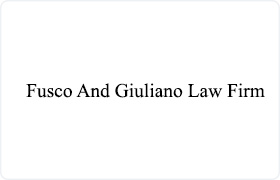 Enfield Misdemeanor Lawyers, Connecticut
Enfield Misdemeanor Lawyers, Connecticut
Sponsored Law Firm
-
 x
x

Click For More Info:
-
Fusco And Giuliano Law Firm
39 Russ Street Hartford, CT 06106» view mapCriminal Defense Law Working Relentlessly For You
Fusco And Giuliano Law Firm serves clients in Hartford, CT and the surrounding areas.
800-731-1370
Not enough matches for Enfield Misdemeanor lawyer.
Below are all Enfield Criminal lawyers.
Sponsored Lawyers
1-2 of 2 matches
Accident & Injury, Estate, Divorce & Family Law, Criminal, Child Custody
John M. Loconsolo is a practicing lawyer in the state of Connecticut handling personal injury, criminal, family law, and estate cases.
(more)


 Carmine Giuliano Hartford, CT
Carmine Giuliano Hartford, CT AboutFusco And Giuliano Law Firm
AboutFusco And Giuliano Law Firm Practice AreasExpertise
Practice AreasExpertise

